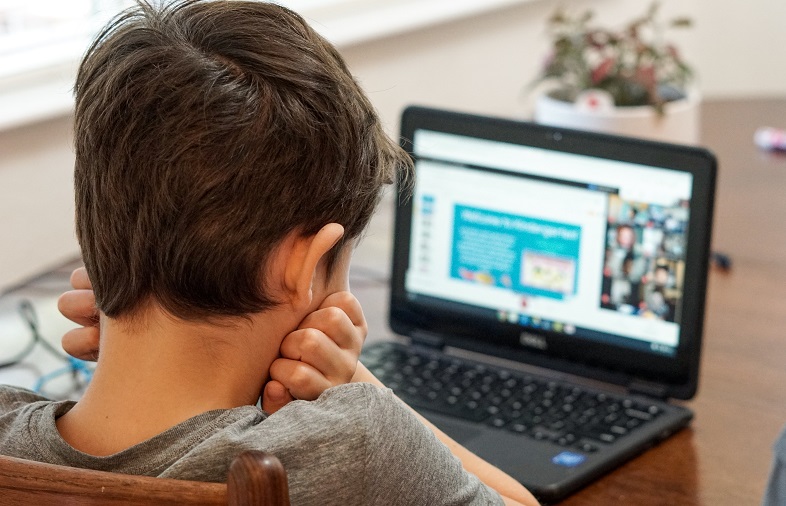By: Phillip Mattie
Summer has arrived, and with it a plethora of spare time to be used as you see fit. Some of you have just graduated; to you I say, “Congratulations! Don’t stop and keep moving forward!” Others are in between grades, looking for work and some spare cash. And then, a very few of you are going to a very loathed and reviled place for one month where two words are uttered always in utter chagrin: Summer school. It can be offline or online tutoring.
Really, though, those of you who elected to go to summer school, you have quite a lot to look forward to. And there are more positives than negatives to going to summer school than you think. Don’t let your initial wince of going to summer school get you down; soon, you’ll be ahead of the game, and that’s the real goal, here. So here is a list of dos and don’ts for all you summer schoolers out there!
Summer School Do’s and Don’ts
Don’t take more than one class
Obviously this is my opinion. But, summer school is condensed, hermetically sealed like a can of spam that you only open to get a fast meal—and some serious stomach pain. Too much and you’ll regret it. Metaphors aside, because summer school is so short, there are four whole months of information in a single thirty days. Which means longer classes covering more material in shorter time frames. Ouch. So it doesn’t make a lot of sense to take more than one class—it’s simply too much material to cover in such a short time. And, for reasons I will expand on further, you will be working overtime by just taking one class, with a ton of review and prep for it.
Plus, your ability to remember course material is hampered by the timeframe. Summer school is like an overnight cram session. You may do well on the test—if you got some sleep—but you aren’t likely to remember much. This problem is exacerbated by having August off. All that information will fall right out of your head in one month before going back to school. Realistically, you will remember the big ideas, the main ideas of the class, but all the little details like names and dates and events will have fled the coop. Limit that info!
Do work extra hard
What a great way to counter-act short-term memory problems, eh? As a general rule of thumb when it comes to summer school, every one hour of class time should be supplemented by an hour of review. Doing so helps you in a number of ways, not the least of which is retention. It’s best to review very shortly after your class and, with any luck, some of your peers from the class will be there to help you (more on that later). This is true even if you’re taking offline or online senior class tutoring.
But hard work outside the classroom is where real development takes place. I suggest rather than reviewing material, you should leap ahead and learn from the text yourself—to the best of your abilities. Then, your classroom materials, teachers, and friends are supplementary resources rather than primary resources. Your primary resource is your plump noggin. Learning on your own—and building the ability to learn on your own—is an essential life skill you will need once you graduate. Develop it!
Do find friends in class
Bottom line, you need someone to talk to, review with, and share ideas with. Speaking your mind in a relaxed and comfortable area is the foundation of classroom learning, and you can do it best with friends around you, friends you can spitball ideas with and exchange notes and so many other things. And if you’re not a fan of that rational, try this: You are in a classroom with the same people for three hours five days a week; it’d be a shame to go the whole nine yards all by yourself without anyone to supplement and enhance your experience. Finally, learning with someone is a more enriching experience that learning from someone. You form bonds, build relationships, and you are more relaxed, ready to accept information. Enjoy yourself!
Don’t fall behind
Another summer school do’s and don’ts is don’t fall behind. I can’t stress this point enough. Falling behind in summer school is like spinning out on a racetrack—you’re never able to catch up to the lead pack, and you lose a lot of confidence as well as precious rankings. One hour of review and/or prep for every classroom hour will keep you ahead of the game, but I realize that doing so requires you to study three hours every weekday—a very big ask, especially during July. However! Just think what would happen if you fall behind; you’d have to work even harder to catch up, and because the course is so short, there isn’t a lot of time. But perhaps most importantly, if you fall behind, you could fail, the consequences of which are pretty staggering: A summer lost, a potential tan paled, travel stalled. What a waste.
Scare tactics aside, your goal, here, is to get ahead and make next year easier. So get ahead, and material covered in the classroom is simply review. With this philosophy, you can buy yourself precious leeway, perhaps a day off or a weekend out. Keep the wheel steady and your head down, and you’ll be fine. Stay current! This is one of many reasons why you can’t ignore online learning. Online tutors match their teaching pace with that of your reading. They teach as per your convenience.
Final Words
Summer school is a drag, I know. I went to summer school twice. I hated it at first, but it turned out to be a wholly positive experience for me. I had a great time, made new friends I wouldn’t have otherwise made, and I learned some pretty good study habits. Plus, the classes were smaller and the teachers were less stressed, less overworked. It was a great atmosphere. Anyways, enjoy your summer and all the sunshine, learning, and tans that come with it! ‘Till next time.
Hopefully, these summer school do’s and don’ts help make the best of your time at the school. Enjoy your time!



